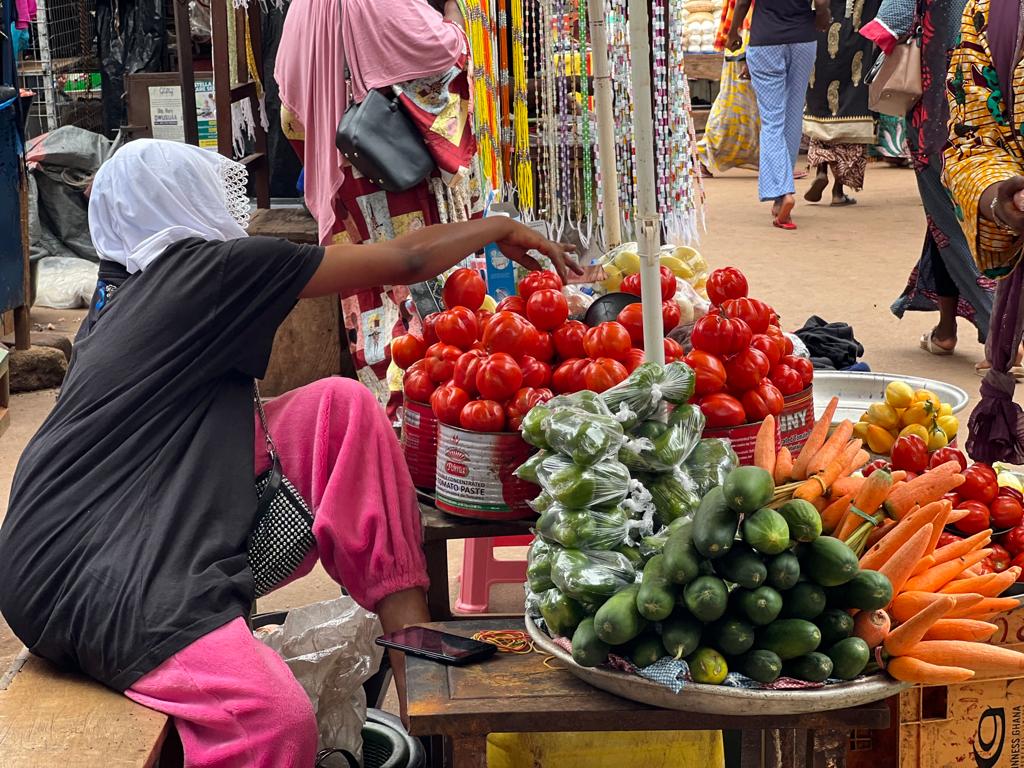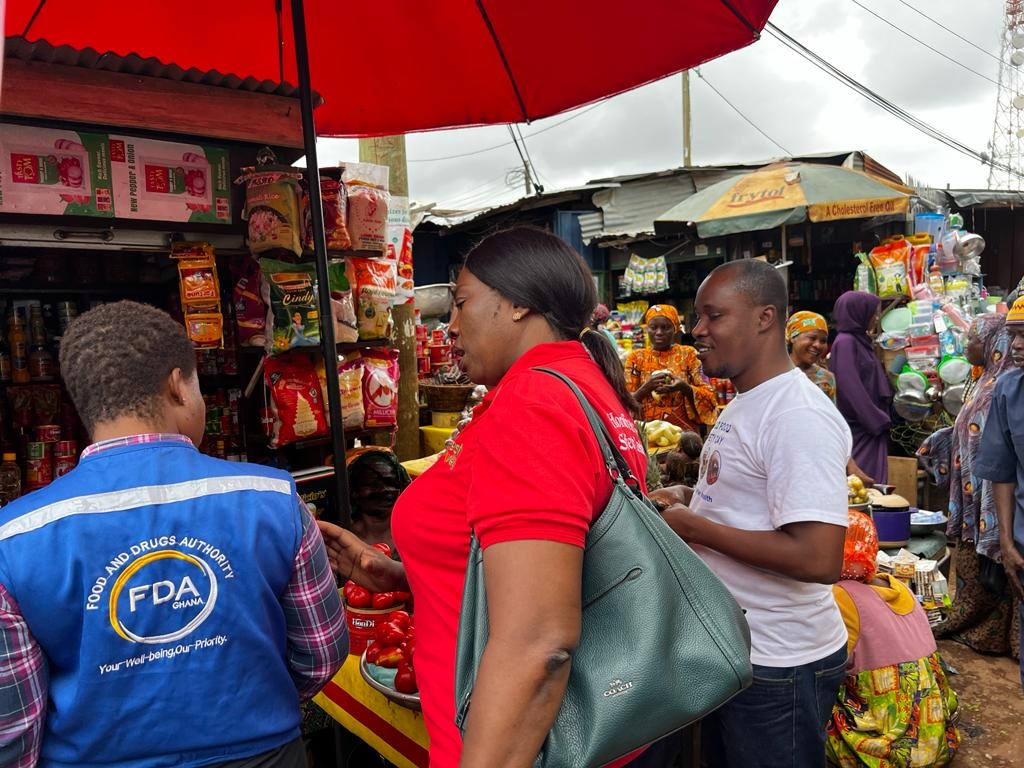Accra, Ghana - Globally, more than 600 million people fall ill and 420 000 die every year from eating contaminated food, with the African region contributing the highest number of cases and deaths.
In Ghana, foodborne diseases such as Cholera, Typhoid fever, Dysentery and Viral Hepatitis pose a significant health burden for health authorities and the health system. These diseases may arise from exposure to contaminated food and unsafe water, heightened by poor hygiene, lower levels of literacy and education.

Now, as part of activities for the 2023 World Food Safety Day, the World Health Organization (WHO) is supporting the Ghana Food and Drugs Authority (FDA) to take food safety education and awareness creation to five major markets in five regions across the country.
“Food safety is everyone’s business and as WHO, we are happy to be working with the government to prevent, detect and respond quickly, to public health threats associated with unsafe food,” says the WHO Representative to Ghana, Prof Francis Kasolo. 
At Nalerigu in the North East region, Ellene Akuliga has been in the food business for the past 23 years. Though she has always prioritized the safety of her food, the food safety outreach at the Nalerigu market has given her the needed arsenal to strengthen safety measures and protect the health of her customers.
“This engagement has provided me with insightful information on the most hygienic ways to prepare and handle food,” says Akuliga, who manages the Devine Grace Cold Store and Catering Services in Nalerigu. “The new information on metal contamination has reinforced the safety mechanisms we have put in place to protect the health of those who eat our food.”
Over 200 diseases are caused by eating food contaminated with bacteria, viruses, parasites or chemical substances such as heavy metals. Foodborne diseases are caused by contamination of food and occur at any stage of the food production, delivery and consumption chain. They can result from several forms of environmental contamination including pollution in water, soil or air, as well as unsafe food storage and processing.
The market outreach and engagement follows this year’s World Food Safety theme, “Food standards save lives”, which highlights the role of established food safety practices and standards to ensure food safety and quality.
“As we make efforts to meet the nutritional and dietary needs of people, our focus is to ensure that standards are upheld to ensure quality and safety” noted, Faustina Atupra, Director of Food Safety and Consumer Directorate at the FDA.
By engaging food vendors, traders, consumers and travellers at various markets, WHO and the FDA are addressing information gaps and mobilizing actions at all levels to promote safety in the production, preparation, handling and consumption of food.
“We believe that the market where food and food ingredients are sold is an important setting to promote food safety,” says the Program Officer for Social Determinants of Health at WHO Ghana, Akosua Kwakye.
“Therefore, we are using this community-level engagement to ensure that the right information reaches the right people at the right place.”
At the Aboabo market in Tamale, Hajia Meimunatu Haruna is happy to have gained insights into how to ensure food safety for her household. She called for the provision of functional water, sanitation and hygiene facilities at markets to further the food safety agenda.
“Our major problem with food borne diseases comes from how the food is handled at the market,” says Hajia Meimunatu. ‘Now that we have been well educated, it is our hope that the authorities will put the facilities in place to ensure the proper disposal of waste materials in the markets to keep the place hygienic.” 
WHO has been at the forefront of providing guidance on food safety. The WHO Five Keys to Safer food manual provides straightforward tips and guidelines on how to produce, process, handle and consume food to limit the spreading and contracting foodborne illnesses.
Communications Officer
WHO Ghana Country Office
Email: sayibui [at] who.int (sayibui[at]who[dot]int)
Tel: +233 25 795 7942


